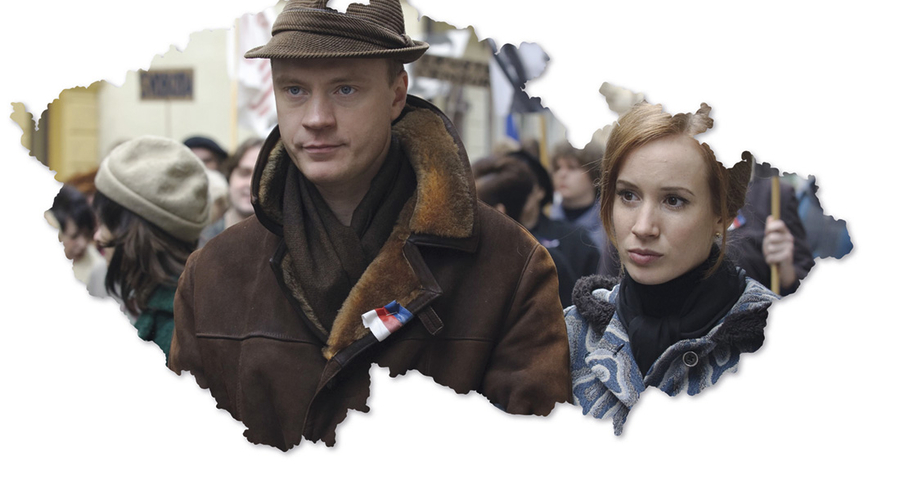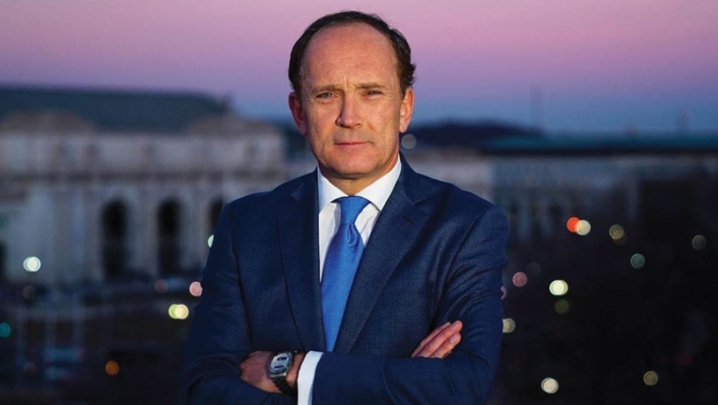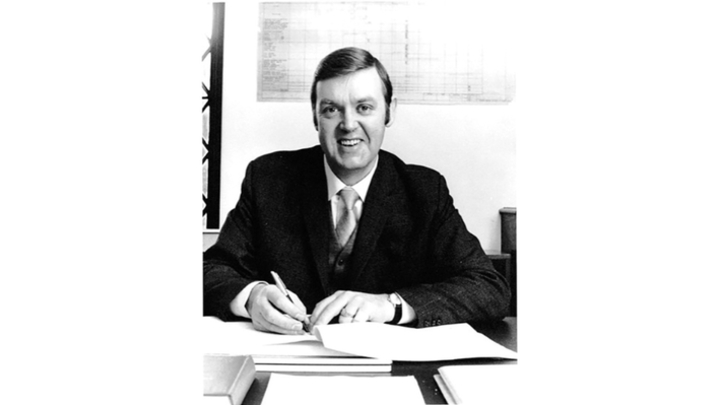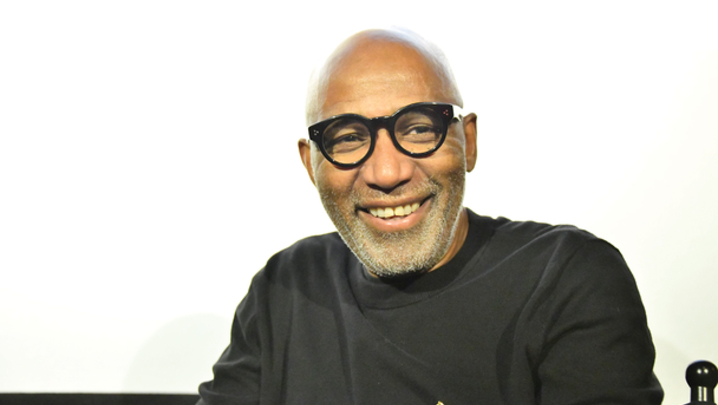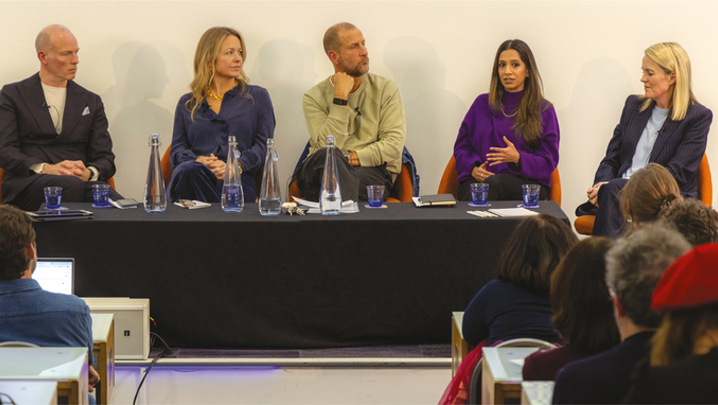As competition bites, HBO Europe is ramping up original production across the continent, reports Stuart Kemp
Patria, a drama series about families ripped apart by ETA, the Basque separatist group that killed around 830 people during its 50-year campaign for independence from Spain, provides the storyline for HBO Europe’s foray into a new territory.
It is adapted from Fernando Aramburu’s novel of the same name by San Sebastián-born screenwriter Aitor Gabilondo, and is the first project to be developed by HBO España, HBO Europe’s newest commissioning hub.
The company plans to make “two, maybe three, shows a year out of Spain”, says Antony Root, head of original production for HBO Europe. “There is an appetite for scripted drama of the highest level among the [Spanish] audience that I have not seen in my career before. And I am an old geezer,” says Root, 64, with a smile.
HBO Europe offers programming to subscribers through three services covering 17 countries. HBO España is available to subscribers as an SVoD service and via an exclusive partnership with Vodafone Spain – customers access the streaming service via Vodafone TV or on their computers, smartphones or tablets. Patria will provide a litmus test for the company’s belief in the power of local shows for local people. It is central to HBO’s strategy to win eyeballs in the face of formidable global competition from local, free-to-air broadcasters, pay-TV giants and Netflix and Amazon’s deep-pocketed streaming services.
Spain is shaping up as ground zero for this battle. Netflix recently announced that its first production base outside North America will be in Madrid. The streamer is investing heavily in Spanish-language content, and is producing 20 originals in Spain this year. They include Isabel Coixet’s Elisa y Marcela, and season 3 of popular local TV series Las Chicas del Cable, made by Madrid’s Bambú Producciones.
Erik Barmack, vice-president of international originals at Netflix, says the move “will create new opportunities for Spain’s incredible creative talent, as well as demonstrating our commitment to the production of original content throughout Europe”.
"Original programming gives you relevance in the marketplace for a relatively modest investment”
UK producers are looking on with interest. They wonder who will make the next move and where the opportunities lie for them.
“It is great that you can now make an ambitious piece of television in two or three languages and versions if you want to,” says Kevin Loader of Free Range Films, whose credits include The Lost Honour of Christopher Jefferies.
HBO Europe was created in 1991. It started out with adaptations of existing international formats, most notably the Hebrew-language Israeli series BeTipul, which HBO America remade in English as In Treatment, starring Gabriel Byrne. Rather than buy the US version from HBO, Linda Jensen, then head of HBO Central Europe, decided to begin making versions for individual European territories.
HBO Europe has created iterations of BeTipul in Poland, the Czech Republic and Romania. In Hungary and the Czech Republic, it has made local versions of romcom When Shall We Kiss?.
Root arrived in 2011 and, in his second year, HBO Europe enjoyed a local-language hit in the Czech Republic with Burning Bush, directed by world-renowned Polish film-maker Agnieszka Holland. Based on real events and characters, Burning Bush focuses on student Jan Palach, who set himself on fire in 1969 to protest at the Soviet occupation of Czechoslovakia. The show went on to win awards and emboldened HBO Europe’s local-content strategy.
It built its own internal writing teams within the central European countries. The game plan involved growing a generation of writers by working on adaptations and then grooming them to do original work. It would later repeat this in the Nordic region and, subsequently, in Spain.
It strove to work with film-makers and talent at the top of their game. It was a canny move that Netflix is seeking to emulate.
“Of course, you can buy original series from America but original local programming has a big marketing impact with very high viewing figures,” says media and telecoms analyst François Godard at Enders Analysis. “It is successful in popular culture because people talk about it. Original programming gives you relevance in the marketplace for a relatively modest investment.”
As an example, he points to Spanish pay-TV company Telefónica, which creates 12 TV series for around €100m – compared with paying €1bn a year for football rights.
HBO Europe now comprises several constituent parts: in Scandinavia, HBO Nordic has established itself with its “The home of series” strand, offering a premium SVoD service directly to consumers and via operator partners in Sweden, Norway, Finland and Denmark.
In Central Europe, HBO is available to subscribers in Hungary, the Czech Republic, Slovakia, Poland, Romania, Bulgaria, Slovenia, Croatia, Serbia, Montenegro, Macedonia and Bosnia and Herzegovina.
“It takes years to build up the human resources, the people who know how to write for TV, shoot for TV, people who know the rhythms and needs”
Content for both regions is being fed by HBO Europe’s own talent pools. And in an effort to unearth talent in the Adria region of the former Yugoslavia, the company recently launched a scriptwriting competition.
The winner was Marjan Alčevski’s Success, about four strangers bound together by one violent event. The series is the first original series from the region. Filming took place in the Croatian capital of Zagreb earlier this year. It was directed by Bosnian Danis Tanović, the first foray into TV for the Oscar-winning writer and director of No Man’s Land.
The company is reaping the rewards of having operated across Central and Eastern Europe for more than 20 years. “It takes years to build up the human resources, the people who know how to write for TV, shoot for TV, people who know the rhythms and needs,” says Godard.
HBO Nordic has green-lit Beforeigners from Lilyhammer creators Anne Bjornstad and Eilif Skodvin. Directed by Norwegian film-maker Jens Lien, the near-future science fiction series is a smart satire on attitudes towards immigration and western society. It is the division’s second original production, and follows acclaimed Swedish director Lukas Moodysson’s comedy series Gösta, which recently wrapped.
HBO Europe’s first international co-production, Hackerville, is a six-part series conceived by Deutschland 83 co-creator Joerg Winger and Ralph Martin. Produced by Romanian filmmaker Cristian Mungiu and producer Tudor Reu via their Bucharest-based Mobra Films, the Romanian-German thriller about a network of hackers is co-produced with TNT Serie and filmed in Germany and Romania. It will air later this year.
The hope is that such ambitious output will also travel across borders. A local story well told should have universal appeal, runs the theory. All the new original language shows will be available across all 17 countries in which HBO Europe operates.
In the US, they will play on HBO Go, HBO Now, and HBO On Demand, the company’s VoD platforms. In the UK, HBO Europe-created content has aired on Channel 4’s Walter Presents. The shows include Burning Bush and The Border, and content is sold into the market on a case-by-case basis. Sky Atlantic and Sky’s on-demand service Now TV play host to HBO’s English-language output via its deal with Sky.
“We wouldn’t be creating original programming if we didn’t think it was commercial,” says Root. “When you offer programming you have a different relationship with your audience than if you simply acquire programming.
“A lot of what we do in our business at HBO is defined by the people you get to work with. We aim for an extra dimension, whatever that HBO magic dust is, we want to apply it to these local shows.”

